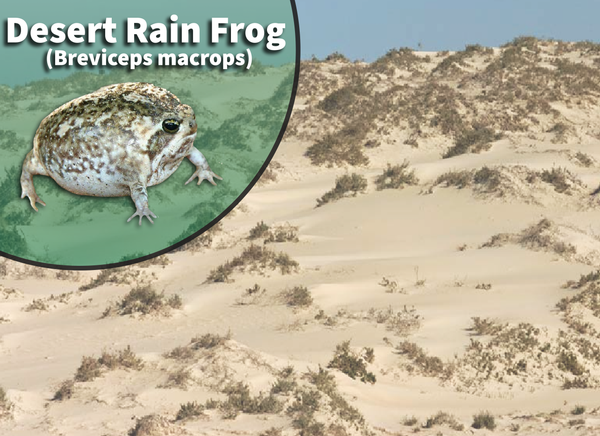Discover Rain Frog for Sale: Boost Your Family Pet Video Game with a Special Amphibian Friend!
Discover Rain Frog for Sale: Boost Your Family Pet Video Game with a Special Amphibian Friend!
Blog Article
Common Health And Wellness Issues in Reptiles: Signs And Symptoms and Solutions
In the elaborate world of reptile treatment, understanding the usual health and wellness issues that might affect these one-of-a-kind creatures is extremely important in ensuring their health. Whether it's grappling with parasitic problems, navigating dehydration problems, or attending to skin disorders that materialize in refined ways, being attuned to the signs and symptoms and equipped with the understanding of reliable services is essential for any type of reptile proprietor.
Respiratory Infections
Respiratory infections in reptiles can significantly impact their total wellness and need prompt attention from seasoned vets. In reptiles, respiratory infections can be particularly testing to diagnose and deal with due to their special composition and physiology.
Treatment for respiratory infections in reptiles typically entails a combination of encouraging treatment, such as maintaining correct humidity levels and temperature slopes in the enclosure, along with targeted medicine to deal with the specific microorganism responsible for the infection. It is crucial for reptile proprietors to monitor their family pets closely for any kind of indications of respiratory system distress and look for vet care at the earliest sign of a problem. With prompt intervention and ideal treatment, several reptiles can recuperate totally from breathing infections and return to typical tasks.

Metabolic Bone Disease
What variables contribute to the development of Metabolic Bone Disease in reptiles?
Metabolic Bone Disease (MBD) in reptiles is mainly triggered by a lack of proper calcium, phosphorus, and vitamin D3 levels in their diet. Additionally, inadequate exposure to UVB light avoids reptiles from synthesizing vitamin D3, which is essential for calcium absorption and bone health and wellness.
Inadequate humidity degrees can also influence a reptile's capability to metabolize calcium effectively. Normal veterinary exams, proper husbandry techniques, and a balanced diet regimen are vital to prevent Metabolic Bone Condition in reptiles.
Parasitic Invasions
Parasitic invasions pose a considerable health danger to reptiles, influencing their overall health and requiring timely vet attention. Reptiles can be impacted by numerous parasites, including termites, ticks, inner worms, and protozoa. These parasites can trigger an array of symptoms, such as weight reduction, sleepiness, skin irritability, diarrhea, and even fatality if left untreated.
One typical bloodsucker located in reptiles is the mite, which can cause skin anemia, irritability, and stress. Ticks are an additional exterior parasite that can transmit diseases and cause discomfort to the reptile. Interior bloodsuckers like worms and protozoa can bring about digestive issues, poor nutrition, and damage the reptile's immune system.
To diagnose a parasitic infestation, a veterinarian may perform fecal tests, skin scrapings, or blood tests. Treatment frequently involves deworming medications, antiparasitic baths, or in severe instances, a hospital stay. Preventative actions such as normal vet examinations, appropriate hygiene, and quarantine treatments for brand-new reptiles can aid lessen the danger of parasitic infestations and ensure the well-being of reptile pet dogs.
Dehydration and Hydration Issues
Dehydration in reptiles can significantly influence their wellness and wellness, requiring timely treatment and proper hydration administration. Reptiles are prone to dehydration as a result of numerous elements such as insufficient water consumption, high ecological temperatures, and certain wellness problems. Symptoms of dehydration in reptiles consist of sunken eyes, lethargy, loss of skin elasticity, and minimized urination. If left neglected, dehydration can lead to significant health and wellness concerns and her comment is here even be deadly to the reptile.
To stop dehydration, reptile proprietors should make certain that their family pets have access to clean water in all times. The water meal need to be large sufficient for the reptile to saturate in if needed, particularly for varieties that take in water via their skin. Additionally, preserving correct humidity levels in the reptile's unit and providing routine bathrooms can help stop dehydration.
In cases of dehydration, it is critical to seek vet treatment immediately. A vet might provide liquids either by mouth or through injections to rehydrate the reptile. It is vital to deal with the underlying reason for dehydration to stop recurrence and make sure the reptile's total well-being.
Skin Conditions

Verdict

Respiratory infections in reptiles can significantly influence their general health and need prompt focus from knowledgeable veterinarians (rain frog for sale). Preventative procedures such as regular vet check-ups, correct hygiene, and quarantine treatments for new reptiles can find out this here aid reduce the threat of parasitic problems and guarantee the health of reptile family pets
If left neglected, dehydration can lead to significant health concerns and even be fatal to the reptile.
Routinely inspecting your reptile for any type of changes in skin appearance, color, or structure can assist in early detection and therapy of skin ailments, promoting the general wellness click for source and well-being of your scaly buddy. - rain frog for sale
In verdict, reptiles are prone to various health and wellness concerns such as respiratory infections, metabolic bone disease, parasitic invasions, dehydration, and skin disorders.
Report this page